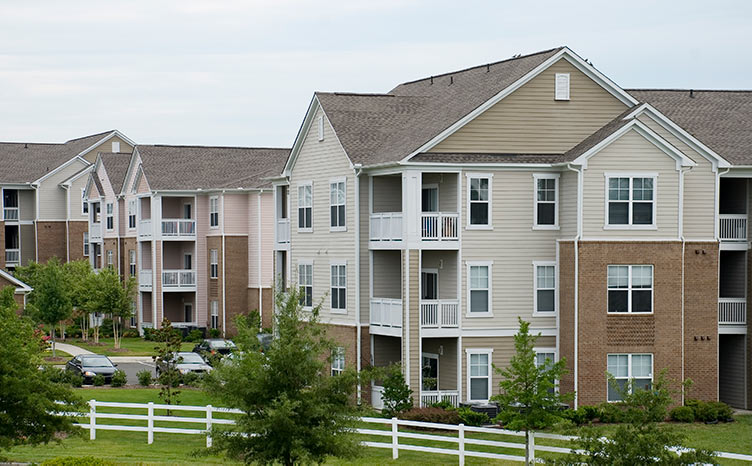
The Opportunity Zone Program was created to direct much-needed capital to distressed areas by offering tax deferral incentives to investors. The program is finite with many deadlines: the statutory expiration of Qualified Opportunity Zones’ (QOZ) designations is December 31, 2028. Additionally, 2028 will be the first year during which early QOZ investments can be sold, allowing investors to qualify for their 10-year gain exclusion.
Given the deadlines involved with the program, one question might be whether a long-term lease is permitted for an opportunity zone project. While these types of arrangements can last for 10 years or longer (beyond the statutory expiration deadline), there is no deadline involved with long-term QOZ leases.
While timing is not an issue, Qualified Opportunity Zone Businesses (QOZBs) and Qualified Opportunity Funds (QOFs) need to follow lease-specific guidance from the Internal Revenue Service and U.S. Department of the Treasury, to ensure adherence to the program.
To Lease, or to Own: That is the Question
The first round of Opportunity Zone program guidance, unveiled in late 2018, demonstrated a glaring lack of information about property leases. The original release indicated that, to qualify for any kind of tax break, substantially all tangible property owned or leased needed to be QOZB property. The original release also stated that at least 70% of that property needed to be used for business in the QOZ. While this initial ruling helped clarify whether food trucks or leased business equipment passed the Opportunity Zone test, it didn’t do much for explaining real-estate leasing specifics.
Fortunately, the IRS and Treasury provided more clarity in subsequent guidance releases. The April 2019 update offered helpful rules about how property leases could comply with QOZ law. The December 2019 follow-up focused on issues such as tribal leases in QOZs on government land, the value of leased assets and actual lease terms, valued for purposes of the program’s 90% investment standard.
Boiling this down to plain English, the takeaways are that:
- “Substantial improvement” and “original use” requirements aren’t as stringent with leased, versus owned, QOZ properties.
- Properties that are leased aren’t subject to the same, stringent “related party” rules as asset sales.
A Need for Tenant Improvements?
Brushing off the Opportunity Zone glossary, the definition of “original use” (or original use of tangible property) involves the timing of when a property is actually in service, or available for rent -- within the QOZ. Keep in mind that the Opportunity Zone program is geared toward improving lower-income communities.
Let’s say that Ready Investment LLC, a Qualified Opportunity Fund, buys an already leased warehouse in a QOZ. Ready Investment can’t just buy that warehouse and operate it, business as usual. If that fund is interested in ensuring its investors benefit from tax deferrals, it needs to make substantial improvements to that asset, even while the tenant stays in place and conducts business as usual.
Now, things are different if that warehouse has been vacant for at least three years before Ready Investments came along and bought it. Under that circumstance, the building doesn’t have to meet the “substantial improvement” test, in which Ready Investments must double its cost basis during the first 30 months of ownership. In fact, Ready Investments can actually stick a “for rent” sign on that building after closing on it, without any kind of improvement.
Stringent Rules, Related Parties
Here is another investment definition. Related parties are those that share similar ownership, or have common interests, in an asset. From a QOZ asset-ownership viewpoint, this means that a Ready Investment partner can’t split off, form another QOF named Ready Investment II LLC, and buy the above-mentioned warehouse.
But, Ready Investment II, LLC CAN be a tenant, sign a ground-lease for the warehouse and make its own improvements, under the following guidelines:
- Both parties inked the deal after 2017
- The tenant pays market-rate rent
- The lease doesn’t carry a more than 12-month prepayment
- There is no intent or expectation that the tenant will eventually acquire the property for other than fair market value to be determined at the time of purchase
The point is to ensure that these related parties don’t carry an unfair advantage when it comes to ground leases.
Ensuring Direct Property Management
Finally, there is the property management question.
If Ready Investments buys, and makes improvements to, a multi-family property in the QOZ, does this fall under the “active trade” requirement? The “business,” in this case, is renting and property management, rather than specifically manufacturing, or creating a product or service. According to the IRS, real estate leasing and property management do meet the business and active-trade requirements.
Unless the lease involves a triple-net arrangement.
Under a triple-net agreement, the tenant agrees to cover all expenses for the property it leases, including ongoing maintenance, renovations, and taxes. The owner doesn’t have to worry about any of it. This is fine outside of a Qualified Opportunity Zone. Within that zone, however, the arrangement doesn’t qualify as an active-trade agreement. Why? The tenant is doing all of the work, and making all of the investment. The IRS and Treasury like to see QOZ property owners have some kind of active property involvement, for investors to qualify for tax deferral.
Quality, not Quantity
Unlike the early days of Opportunity Zone guidance, QOZBs, QOFs, and other entities now have enough information when it comes to leasing of zone-located properties. While long-term leases aren’t an issue -- even when the program comes to an end, the tenants will remain -- the QOZ regulations are specific when it comes to lease agreements, both with businesses and tenants.



